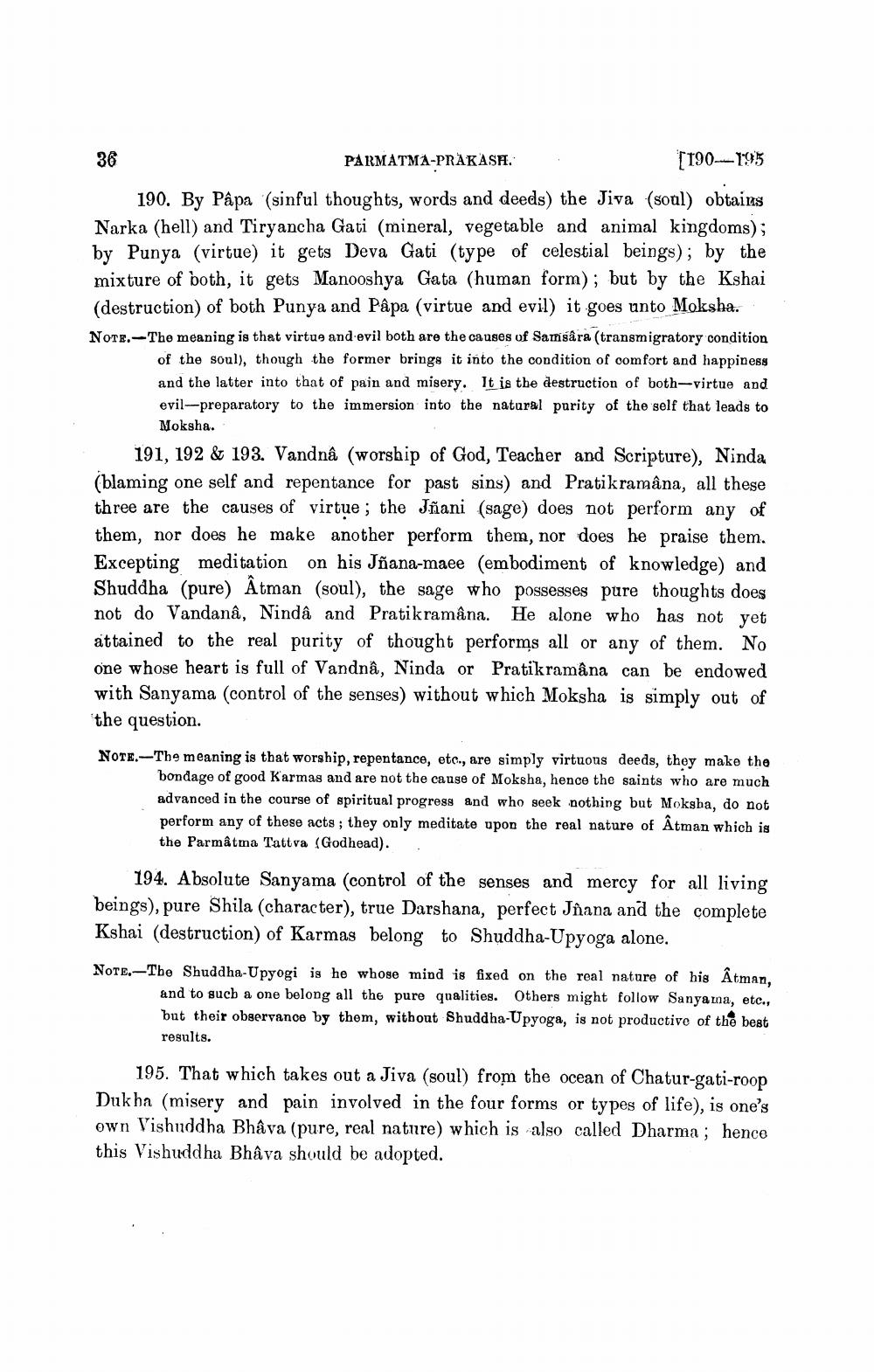________________
36
PARMATMA-PRAKASH.
1190-195
190. By Pâpa (sinful thoughts, words and deeds) the Jiva (soul) obtains Narka (hell) and Tiryancha Gati (mineral, vegetable and animal kingdoms); by Punya (virtue) it gets Deva Gati (type of celestial beings); by the mixture of both, it gets Manooshya Gata (human form); but by the Kshai (destruction of both Punya and Pâpa (virtue and evil) it goes unto Moksha. NOTE.-The meaning is that virtue and evil both are the causes of Samsara (transmigratory condition
of the soul), though the former brings it into the condition of comfort and happiness and the latter into that of pain and misery. It is the destruction of both-virtue and evil-preparatory to the immersion into the natural purity of the self that leads to
Moksha.
191, 192 & 193. Vandnâ (worship of God, Teacher and Scripture), Ninda (blaming one self and repentance for past sins) and Pratikranaâna, all these three are the causes of virtue; the Jñani (sage) does not perform any of them, nor does he make another perform them, nor does he praise them. Excepting meditation on his Jñana-maee (embodiment of knowledge) and Shuddha (pure) Atman (soul), the sage who possesses pure thoughts does not do Vandanâ, Nindâ and Pratikramâna. He alone who has not yet attained to the real purity of thought performs all or any of them. No one whose heart is full of Vandnâ, Ninda or Pratikramâna can be endowed with Sanyama (control of the senses) without which Moksha is simply out of the question.
NOTE.-The meaning is that worship, repentance, etc., are simply virtuous deeds, they make the
bondage of good Karmas and are not the cause of Moksha, hence the saints who are much advanced in the course of spiritual progress and who seek nothing but Moksba, do not perform any of these acts; they only meditate upon the real nature of Atman which is the Parmatma Tattva (Godhead).
194. Absolute Sanyama (control of the senses and mercy for all living beings), pure Shila (character), true Darshana, perfect Jñana and the complete Kshai (destruction) of Karmas belong to Shuddha-Upyoga alone.
Note.-The Shuddha-Upyogi is he whose mind is fixed on the real nature of his Atman,
and to such a one belong all the pure qualities. Others might follow Sanyama, etc., but their observance by them, without Shuddha-Upyoga, is not productive of the best results.
195. That which takes out a Jiva (soul) from the ocean of Chatur-gati-roop Dukha (misery and pain involved in the four forms or types of life), is one's own Vishuddha Bhâva (pure, real nature) which is also called Dharma ; hence this Vishuddha Bhâva should be adopted.




